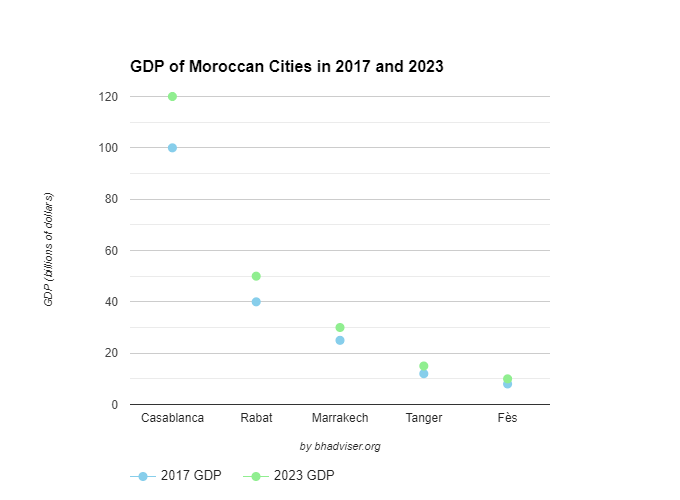Address: Front office : Twin Centre Tower A 6th floor Corner boulevard zerktouni and boulevard El Massira Casablanca Back office : espace ghazwani, Boulevard Ifni, Casablanca
Opening hours :Mon - Fri: 9am-12.30pm and 2pm-6pm Sat: 9am-12pm
Address: Front office : Twin Centre Tower A 6th floor Corner boulevard zerktouni and boulevard El Massira Casablanca Back office : espace ghazwani, Boulevard Ifni, Casablanca
Opening hours :Mon - Fri: 9am-12.30pm and 2pm-6pm Sat: 9am-12pm

Morocco, located at the crossroads of Europe and Africa, presents a dynamic and growing economy, offering a plethora of opportunities for entrepreneurs and investors. Its strategic location, coupled with a stable political climate, makes it an attractive destination for business expansion.
The Moroccan government has been proactive in creating a business-friendly environment, focusing on simplifying processes and offering incentives to new businesses. This article delves into the various aspects of starting a business in Morocco, particularly the costs associated with company registration.

Before embarking on the journey of business registration in Morocco, it’s crucial to understand the different types of business entities available. Each entity has its own set of rules, regulations, and costs.
The most common forms are Sole Proprietorship, Limited Liability Company (SARL), Joint Stock Company (SA), and branches or subsidiaries of foreign companies. Your choice will depend on the nature of your business, the level of liability you are willing to assume, and your long-term business goals.
Registering a company in Morocco involves several steps, starting from conducting thorough market research to drafting a robust business plan. Selecting the right type of business entity is a critical decision.
Following this, there are specific legal requirements and procedures to be adhered to, which include obtaining the necessary approvals, registering with the Commercial Registry, and fulfilling all compliance requirements.
The registration process requires a set of legal documents. This includes personal identification documents, company statutes, articles of association, and any necessary permits or licenses specific to your business sector. It’s important to prepare these documents carefully to avoid any delays in the registration process.
The CRI plays a vital role in facilitating business registration in Morocco. It acts as a one-stop shop for entrepreneurs, providing guidance, information, and assistance in navigating the administrative procedures involved in setting up a business.
One of the primary concerns for potential business owners is the cost of registering a company. This includes government fees, legal and professional fees, and additional costs such as notary fees and expenses related to obtaining specific licenses. Understanding this cost breakdown is essential for effective financial planning.
Following company registration, tax registration is a critical step. This involves VAT registration and understanding the corporate tax requirements. Morocco offers various tax benefits for new businesses, which can significantly impact your business’s financial planning.
A corporate bank account is essential for any business. The process involves certain requirements and documentation, and choosing the right bank is crucial for managing your business’s finances effectively.
For many businesses, real estate is a significant consideration. This section explores the options and costs related to renting or buying property for your business in Morocco and how this impacts the overall cost of registration.
Understanding Morocco’s labor laws is essential when hiring employees. This includes the recruitment process, employment contracts, and regulatory compliance. Ensuring that your business adheres to these laws is critical for smooth operations.
Protecting your business ideas and intellectual property is crucial. This section covers the process of trademark registration and other measures to safeguard your intellectual property in Morocco.
Securing funding is a vital aspect of starting a business. This section provides information on local funding options, international grants, and loans available to entrepreneurs in Morocco.
Understanding and adapting to the local business culture is key to success in Morocco. This includes understanding Moroccan business etiquette and building effective business relationships.
Starting a business in a new country comes with its own set of challenges. This section discusses common challenges faced by foreign investors in Morocco and offers solutions and strategies to overcome these obstacles.
Digitalization has streamlined the business registration process in Morocco. This section explores the online registration processes and digital tools available to entrepreneurs.
Networking and accessing business support services can greatly assist in establishing and growing your business in Morocco. This includes business associations, chambers of commerce, and support services for startups and SMEs.
Developing a strong marketing strategy and brand identity is crucial for new businesses. This section offers insights into effective marketing and branding techniques tailored for the Moroccan market.
Business insurance and risk management are essential components of running a successful business. This section discusses the types of business insurance available and strategies for assessing and managing risks.
Compliance with financial reporting and regulatory requirements is mandatory for businesses in Morocco. This section outlines these requirements and the importance of adhering to them.
For businesses looking to expand, this section offers strategies for growth and exploring new markets within Morocco.
Learning from successful businesses can provide valuable insights. This section features case studies of local businesses that have thrived in Morocco’s business environment.
The Moroccan government offers various resources and support to businesses. This section provides information on government initiatives, useful contacts, and websites for entrepreneurs.
Understanding the future prospects and trends in the Moroccan business landscape can help in strategic planning. This section discusses emerging industries and predictions for the business environment.
In Morocco, the primary types of business entities are Sole Proprietorship, Limited Liability Company (SARL), Joint Stock Company (SA), and branches or subsidiaries of foreign companies. Each has unique features and requirements, catering to different business needs.
The time frame for registering a company in Morocco can vary, but it generally takes about 1 to 2 weeks. This duration can be influenced by the type of business entity, the completeness of your documentation, and the specific procedures of local authorities.
The costs of registering a company in Morocco include government fees, legal and professional fees, and additional expenses like notary fees and licensing. The exact amount can vary based on the type of entity and specific business requirements.
It is not mandatory to have a local partner to start a business in Morocco, especially for certain types of business entities like SARLs and SAs. However, having a local partner can be beneficial for navigating the business environment.
Yes, Morocco offers various incentives for foreign investors, including tax benefits, investment grants, and reduced tariffs in specific sectors. These incentives are designed to encourage foreign investment and stimulate economic growth.
The CRI acts as a one-stop shop for entrepreneurs in Morocco, assisting with company registration, providing information and guidance, and facilitating interactions with government agencies. It plays a crucial role in simplifying the business setup process.
The article concludes with a summary of the key steps and costs involved in registering a company in Morocco, offering final thoughts and encouragement to prospective business owners.